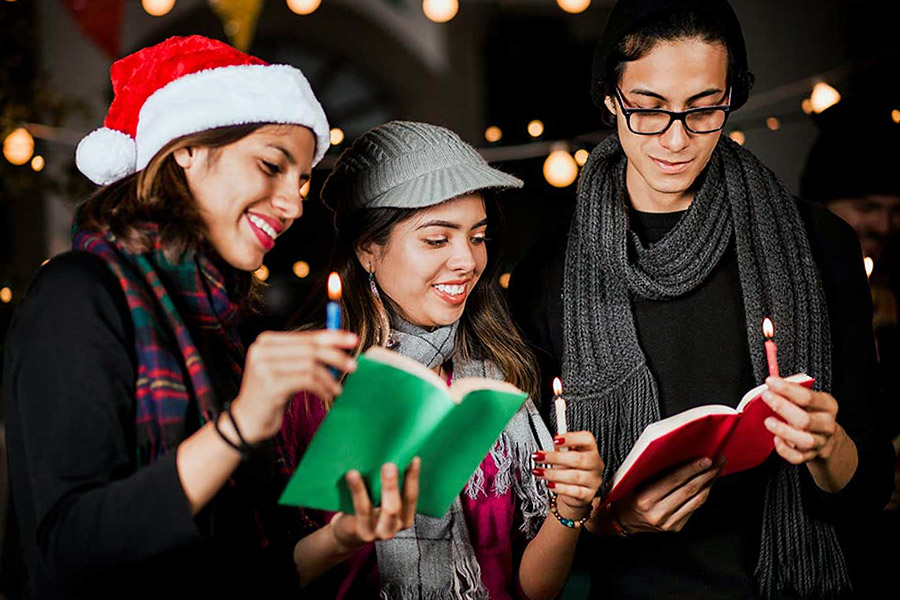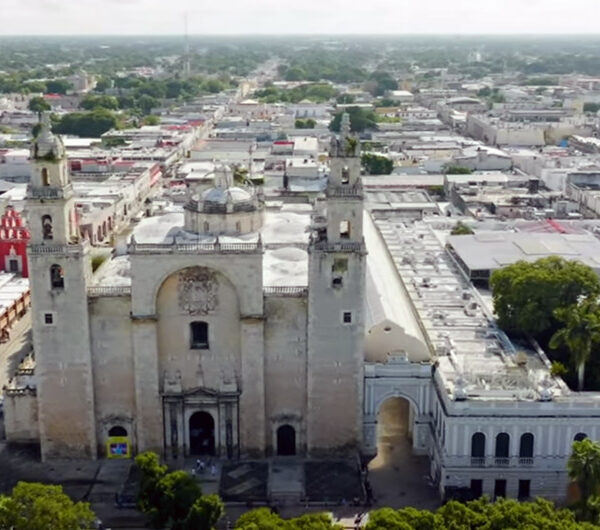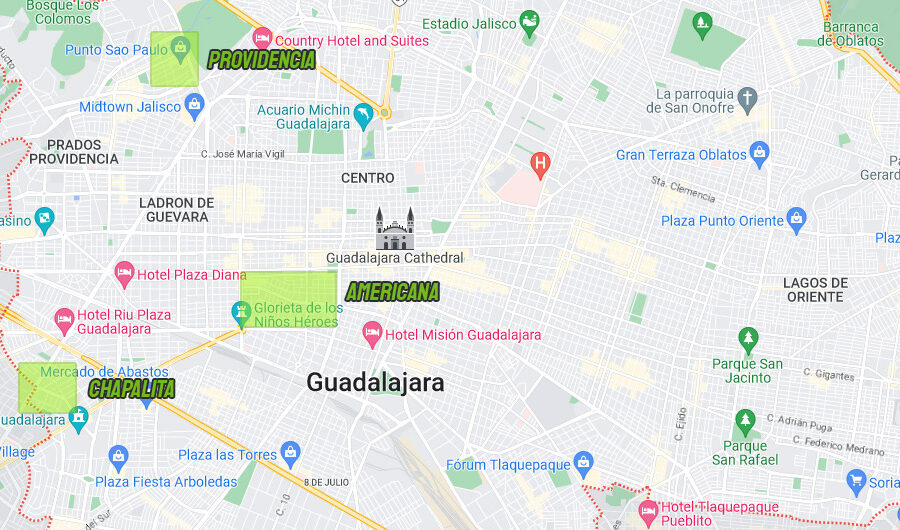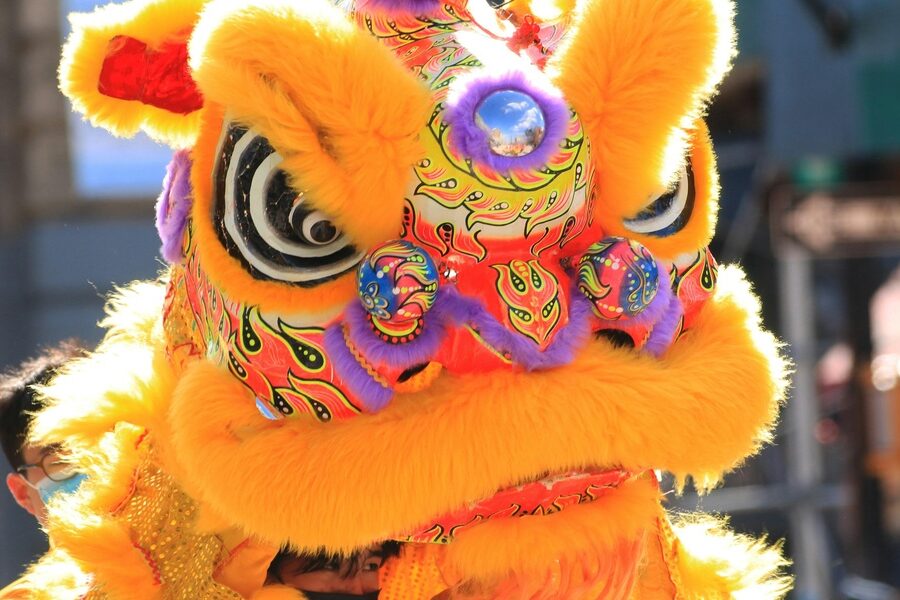If you are in Mexico a week before Christmas and you have local friends or family, you might get invited to one of the most amazing traditions. One that only occurs in Mexico and some parts of Latin America. A posada (or las posadas, plural).
But what is a posada?
A posada is one of the nine days before Christmas. In a posada, Mexican families and groups of friends get together to reenact the catholic story leading up to Christmas where Mary and Joseph traveled, went through hardships, and had to search for places they could spend the night safely. Posadas occur between December 16th and December 24th. Each day represents one month of Mary’s pregnancy.
In a posada, Mexicans will sometimes pray, sing, and perform a ritual walk reenacting the pilgrim’s journey. After that, they eat, drink, break a piñata, give away candies to kids, and sometimes they´ll party late into the night. Then the next day, and for nine days in a row, the same thing happens again.
– “Wait! are you telling me Mexicans party for nine straight days before Christmas? that’s awesome!”
– Yes and yes.
While most families or groups of friends only celebrate one or two posadas, if you know enough people and you are up for a party marathon, it is not hard to find one every single day.
If you get the chance, it is definitely to go to one while you are in Mexico. You will have lots of fun.
Origin of Las Posadas
Posadas are a very unique tradition because even though they have a catholic origin, they are not common in Europe. Not even Spain or Italy.
This is because they were created in Mexico. Well, actually in Nueva España (New Spain) which was the name of the territory between 1521 and 1821 before its independence.
The posadas were created by Diego Soria, a Spanish fraile (kind of like a monk) who was trying to find new ways to evangelize the indigenous communities (Mayans, Aztecs, etc.) and convert them to catholicism.
He thought that people would empathize more with the story of the birth of Jesus if they were to experience the journey Mary went through using a scenic representation of it. Then he combined the dates with their celebration of Huitzilopochtli, the Aztec god of the Sun and war.
In the beginning, posadas or misas de aguinaldo as they were called back then were mostly religious, but over the years, fun activities were added so the kids would stay engaged. Through the course of centuries, the party-to-religion ratio changed and more activities like piñatas were incorporated. Nowadays there are posadas that have absolutely nothing to do with religion and are simply gatherings where friends eat, drink and spend a good time together. This is especially the case among younger Mexicans.
How are Las Posadas Celebrated?

Every family and groups has their own little variations of what they do at a posada, but in general terms, it goes like this.
Procession – This part is sometimes skipped if there is not enough space for it. During the procession, people walk around a street or patio with small wax candles as a way to reenact the journey of Mary and Joseph through the desert. While they do this, a leader (generally a nice and very religious old lady) at the front sings a verse in Latin and everyone else repeats it.
At the end of the procession, the group splits in two. If possible, one group goes indoors while the other stays outside. Then they sing back-and-forth verses of a song that most everyone knows from memory as they have heard it hundreds of times. This part is in Spanish. The verses of the outdoors group are about Mary and Joseph (the pilgrims) asking for lodging at a stranger’s house. The indoor group represents the owners of the house, and their verses speak about their doubts about letting strangers into their homes. In the end, they let them in and both groups get together again.
The song to ask for posada goes like this:
| Outdoors / Pilgrims: | Indoors / Hosts: |
En el nombre del cielo, os pido posada, pues no puede andar, mi esposa amada. | |
| Aquí no es mesón, sigan adelante, yo no puedo abrir, no sea algún tunante. | |
| No sean inhumanos, tennos caridad que el Dios de los cielos se los premiará. | |
| Ya se pueden ir, y no molestar porque si me enfado los voy a apalear. | |
| Venimos rendidos desde Nazaret, yo soy carpintero de nombre José. | |
| No me importa el nombre, déjennos dormir pues yo ya les digo que no hemos de abrir. | |
| Posada te pido, amado casero, pues madre va a ser, la reina del cielo. | |
| Pues si es una reina, quien lo solicita, ¿cómo es que de noche anda tan solita? | |
| Mi esposa es María, es Reina del cielo y madre va a ser del divino Verbo. | |
| ¿Eres tú José? ¿Tu esposa es María? ¡Entren, peregrinos, no los conocía! | |
| Dios pague señores vuestra caridad y os colme el cielo de felicidad. | |
| Dichosa la casa que alberga este día a la virgen pura ¡la hermosa María! | |
Everyone: Entren santos peregrinos, peregrinos, reciban este rincón, que aunque es pobre la morada, la morada, os la doy de corazón. |
Praying – This part is only done in the most traditional, religious homes. More casual gatherings will skip it.
After the procession, the group leader prays (mostly to Mary) and the rest of the people repeat after them. This part can take somewhere between 10 and 15 minutes. If you are not religious, it is ok to simply remain silent and to not participate.
The piñata – After praying the party can get started. Generally, it will start by breaking one or multiple piñatas.
There are two types of piñatas. Cardboard piñatas are generally made for kids and they will last plenty of rounds as they are hardened with a glue called engrudo.
For adults, piñatas are made of clay and are usually shaped like a star. These piñatas can only take a a few hits so the person whose turn it is to try to hit it will usually be blindfolded to make it more difficult. Then, the rest of the crowd will try to direct them in the direction they should try to aim at.
Mexican will sing a song (noticing a pattern here? they have a song for everything!) while the person-at-bat tries to hit the piñata. Their turn will end as the song ends. It goes like this:
Dale, dale, dale,
No pierdas el tino,
Porque si lo pierdes
Pierdes el camino.
Dale, dale, dale,
No pierdas el tino,
Porque si lo pierdes
Pierdes el camino.
Ya le diste una,
Ya le diste dos,
Ya le diste tres
Y tu tiempo se acabó.
Giveaways – In some posadas, the hosts will give away small bags of assorted candy and/or fruit to the kids (and sometimes to the adults).
Dinner – It is customary for the hosts to serve food at posadas. It will usually be something that is affordable and easy to serve like a sandwich, but in some more elaborate posadas they’ll serve all kinds of Mexican street food, from tacos to pambazos or tamales.
A drink called ponche (punch) is also a staple of the posadas menu. This is a hot fruit punch made out of dried fruit that is very different from the fruit punch served in the US. It is usually served with hawthorn and other fruits in it but you can just drink the liquid if you don’t want those. I’d seriously recommend trying it. Some people even put a splash of alcohol in it. Funny enough, the word they use for it, piquete means the same as the expression in the US for it (spiking).
Party – Depending on what type of posada you are going to, the night might just get started at this point. Some family posadas will call it a night right here, but in some, the music and dancing and drinking begins. Mexicans are very well-known for throwing great parties so make sure you are well-rest because there might be a long night ahead for you.
Conclusion
Mexican posadas are a wonderful tradition and one of the coolest things you can experience in the country. If you get invited to one, definitely go as it will allow you to see all the friendliness and warmth that Mexicans are famous for.
If it is your first time in one, don’t feel intimidated by all the small rituals and the songs and for not knowing what to do. Remember that Mexicans have heard these songs every year since childhood so they know them by heart. It is ok to simply observe and remain silent if you don’t feel like participating.
Hopefully, this guide got you prepared for your first posada. I hope you enjoy it.
Related reading: How do Mexicans celebrate Christmas?






